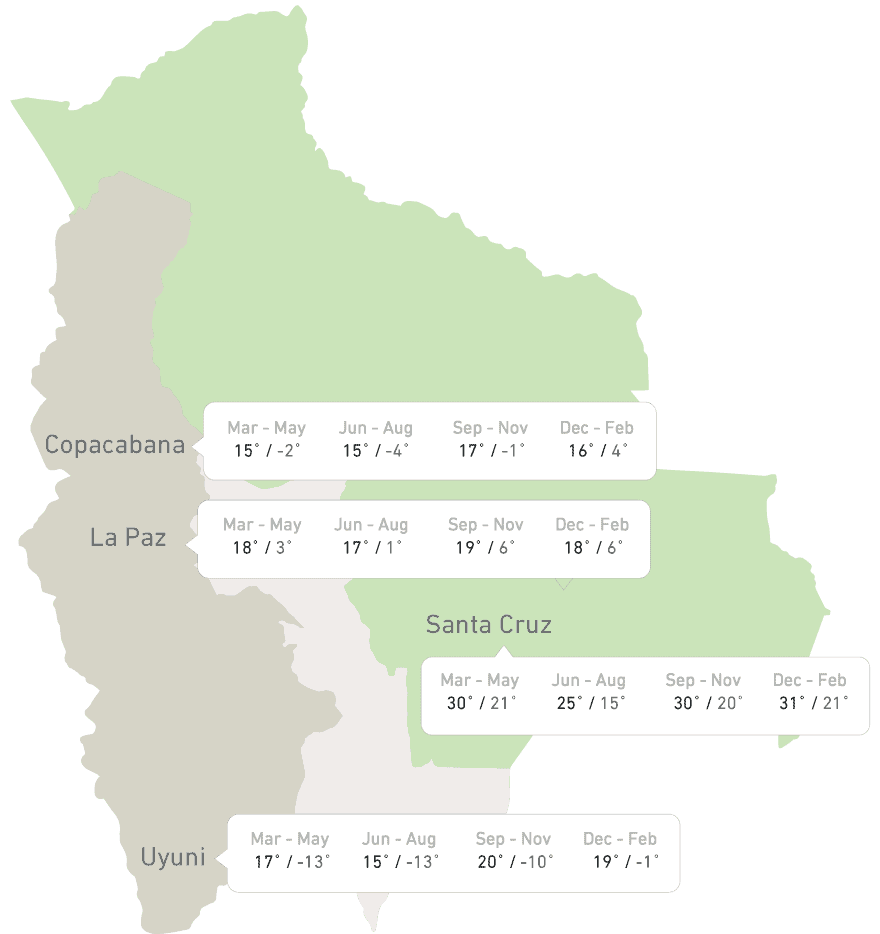
The climate of Bolivia is typical of a high-altitude location, with contrasting cold nights and warm days. It is suitable to wear summer as well as warmer clothes and to dress in layers to quickly adjust to changing conditions. Include a rain jacket as well. La Paz has an average daytime high of 14°C (57°F) and an average night-time low of 1°C (34°F). Warmer clothing is necessary at night, and particularly in the Altiplano, including La Paz, Oruro, Potosi and Uyuni. Santa Cruz has a tropical climate, although it can get chilly from June through September. The rainy season lasts from November to March (summer months) and is longer in the north.
Bolivia boasts a diverse climate attributed to its varied geography and altitude. The dry season, spanning from May to October, is generally regarded as the optimal time to visit. During this period, pleasant temperatures and reduced rainfall make it an ideal time to explore destinations such as Lake Titicaca, La Paz, and Uyuni.
However, the rainy season offers its own enchanting spectacle on the surface of the Salar de Uyuni. This natural wonder transforms into a magnificent mirror, reflecting the sky and clouds above. The allure of this unique phenomenon attracts many Asian travelers. The flooded salt flats provide an opportunity to witness captivating optical illusions caused by the absence of a visible horizon. It's important to note that during this time, access to Fish Island, located in the middle of the Salar, may not be possible. Additionally, the road conditions for venturing further south to the Red and Green lagoons, which involve gravel roads, may not be favorable.
Furthermore, it's important to consider that rates at the "salt hotels" tend to be higher during the rainy season due to increased demand from Asian visitors who come to experience this spectacle.
Bolivia is serviced by three major mobile network operators that offer 4G services:
Each provider offers prepaid SIM card packages that can be conveniently purchased at their official stores, authorized resellers, and kiosks located in major cities. It's important to note that when buying a prepaid SIM card, you may be required to present your passport and mobile phone.
For travelers in a hurry who have a device compatible with e-SIM, a user-friendly website called
offers a seamless experience for purchasing and activating e-SIM cards. They provide detailed instructions to guide you through the process.
Keep in mind that network coverage in remote areas and rural regions, such as Uyuni, may be limited.

